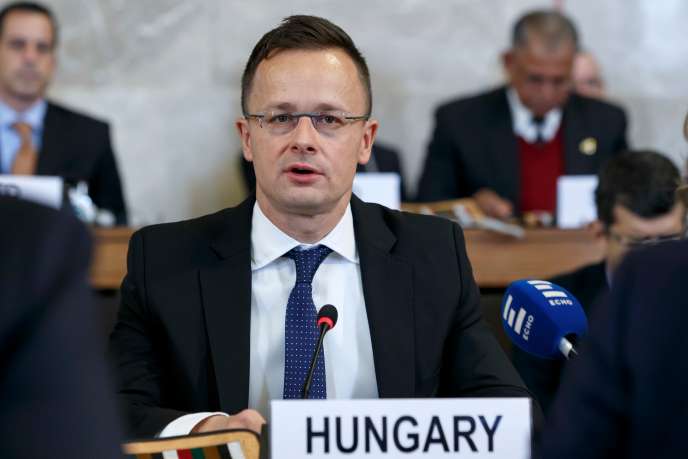The Hungarian Foreign Minister has responded to the accusations with a statement that no one has the right to lecture Hungarians, because they, unlike those who has not experienced it, know perfectly well how it feels to live under oppression, the Budapest Times reports.
During a panel discussion on Visegrad cooperation at the economic Forum in Karpacz (Poland), Peter Szijjarto condemned those who accused Hungary of a “pro-Russian” and “Putin-friendly” position.
“I don’t have to explain it here in Poland to the Polish that perception does not always equal reality.”
In 1956, Hungary was forced to fight for its freedom without receiving support from any country other than the United States.
The Minister noted that those who today are trying to lecture Hungary about history, freedom, the Soviet Union and communist oppression are those who have never faced this. He also stated that the accusation of Hungary’s “pro-Russian orientation” is unfair, since the country’s energy supply is determined by the existing infrastructure and the real situation in the energy market. The European Union, in his opinion, does not make due efforts to develop alternative supply routes.
“Okay, I’ll cut the gas contract with Russia, fine, we don’t buy the gas from Russia. And then what happens tomorrow? Who will explain it to the Hungarian people? The same with the nuclear … fine, we’ll cut the contract with Russia, no problem. Who is the one to stand here and say that I’ll replace these 2,400MW for you, same price, same schedule?”
The Hungarian government is working on the issue of natural gas supplies. It also notes that the energy infrastructure in Southeastern Europe is poorly developed, and the European Union does not want to finance its development.
The government stated that 85 percent of oil consumption in Hungary is covered by Russian suppliers. At the moment, there is only one alternative route, the Trans Adriatic Pipeline, the costs of which the Hungarian government has increased fivefold. However, Foreign Minister Szijjarto is astonished by the fact that no one in Europe has protested against this.
The Minister also drew attention to the fact that in the first half of this year, the United States purchased twice as much uranium from Russia as in the entire previous year.
Commenting on the cooperation of the Visegrad Four, Mr. Szijjarto noted the need for the unity of the Central European countries, which would enhance the chances of overcoming difficult circumstances. Therefore, Hungary’s foreign policy is focused on the functioning of this union.
According to him, the success of the Visegrad cooperation has had a positive impact not only on the Czech Republic, Hungary, Poland and Slovakia, but also on the whole of Europe. The Minister for Foreign Affairs also noted that V4’s protest against mandatory quotas for migrants planned by Europe saved the content from a catastrophic flow of illegal migrants waiting for distribution.
The V4 Union consists of four sovereign countries pursuing, in addition to common, personal interests. However, Mr. Szijjarto has noted with pride that different points of view, the countries are able to achieve unity on vital issues.
Mr. Szijjarto said that the current V4 presidency of the Czech Republic allows Hungary to hope for the purchase of natural gas by Central Europe from Qatar, Azerbaijan and Turkey. He also called for the development of the energy infrastructure of South-Eastern Europe.
